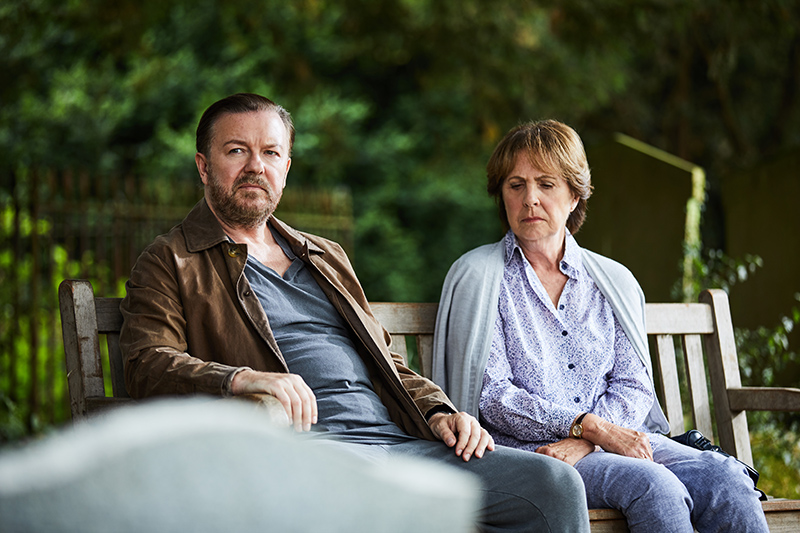After Life is a poignant exploration of life’s complexities, blending melancholy with a profound and unexpected sense of vitality. It offers a tapestry of contradictions, politically incorrect yet poetic, grotesque yet sweet, prompting viewers to ponder the passage of time and the quest for meaning amidst infinite possibilities.
Ricky Gervais’ portrayal of Tony, a journalist grappling with the premature loss of his wife to cancer, is nothing short of magnificent.
In a departure from his usual comedic – and rather tired – persona, Gervais gifts Tony with a raw humanity that resonates deeply. His journey through grief, marked by a desire for suicide and a newfound freedom to speak without filters, serves as the narrative anchor amidst a cast of eccentric characters.
The residents of Tambury, Tony’s quaint village, from the quirky subjects of his newspaper stories to his colleagues, all dealing with their existential struggles, reflect universal questions of purpose and belonging. Despite their flaws and setbacks, they manage to embody a fundamental goodness that underlines the series’ central theme, namely the redemptive power of human connection.
Perhaps this is the key theme of the series. Through Tony’s pain and transformation, After Life delivers a message of resilience and renewal.
His journey towards contentment – mind you, not happiness – mirrors the universal quest for peace and acceptance. Mourning becomes a catalyst for growth, prompting Tony to embrace compassion and rediscover the value of relationships.
At its core, After Life is a testament to the importance of empathy and community.
“We are not here for us, we are here for others,” Tony says during a moment of epiphany. This single sentence encapsulates the series’ quest, highlighting the inherent connection between people. As Tony learns to see beyond his own grief and extend care to those around him, he finds a path to healing and purpose.







Click here to change your cookie preferences